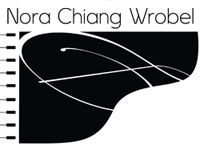THE GIFT OF DAILY MUSIC PRACTICE
THE GIFT OF DAILY MUSIC PRACTICE
The work of a musician is to orchestrate coordinated movements of one’s body into fluid artful communication. This requires a combination of control and of embracing the moment. Not unlike athletes, professional musicians must maintain peak physical conditioning and high level skill at their instrument on a consistent basis. As the brilliant pianist Leon Fleischer says,”Musicians are athletes of the small muscles.” Aside from hard work and discipline, we must also acquire mental flexibility in order to turn skill into meaningful art.
Legendary basketball star Kobe Bryant keeps himself in peak physical condition even during off-season. He arrives early to every team practice session to shoot hoops before group practice begins to work well and beyond the other players on his team to afford him the edge he has earned as a top player. He has the wisdom to understand that his fame comes second to his passion for the game; that at the core of his well-repute is his hard work, daily practice and exercise.
Learning to play a musical piece follows the same principles. Did you know that it takes approximately 10,000 hours (3 hours, 5 days weekly for 10 years) to acquire professional- level skill in any field requiring physical prowess? Although we need to love music in order to begin our pursuit, only practice and persistence gets real results in the end.
But how do we approach our daily practice for maximum results? The first step is to break learning down into smaller, manageable portions instead of overwhelming ourselves with too much too soon. Below is an example of portioning tasks into manageable segments:
– Choose a time and place that affords minimal distractions
– Choose a piece that is reasonably within your scope of learning: challenging but not un-
achievable
– Practice two measures at a time
– Practice the right hand of two measures 10-20 times or until mistake-free
– Practice the left hand of the same two measures 10-20 times until mistake-free
– Practice the same two measures hands together 10-20 times until mistake-free
– Start out with a very slow tempo that you can manage
– Increase tempo in tiny increments with 10-20 repetitions at each successive tempo
– Practice each portion with calm focus and thoroughness without thinking ahead to other tasks
– Continue working in increments of 2 measures, then in increments of 4 measures, etc. until an entire section is learned successfully.
The best kept secret about music-making isn’t merely in the achievement of a good performance. The greatest gift of music is in the daily practice itself. Practicing music teaches us self-discipline, delayed gratification, patience, determination, consistency, focus, emotional and aural sensitization, confidence and humility; it offers us daily communion with beauty and philosophy and produces happy and healthy endorphins. The true gift of music is in the emotional and physical satisfaction we gain through long-term practice . So challenge yourself to learn a new piece today and enjoy the gift of daily music practice.
